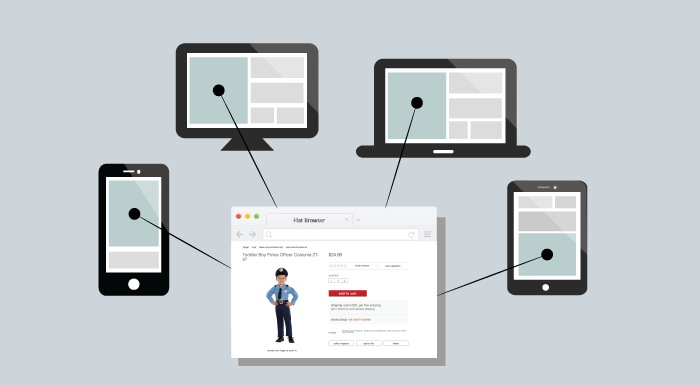Whether you refer to it as omni-channel or omnichannel marketing, it’s something marketers need to give serious attention to, as it’s not just another fly-by-night buzzword. Omnichannel marketing refers to the choice consumers and businesses have when it comes to how they engage with a brand.
From direct mail to apps and even social media, customers today have a seemingly endless array of options to consider when they decide to start their journey with a brand.
For example, I’m in the middle of searching for the perfect Halloween costumes for my two boys. My oldest son wants to be a police officer when he grows up (or a puppy, depending on which day you ask him). While waiting for a doctor’s appointment, I quickly searched for police officer costumes in his size and found one at a reasonable price. I copied the link and added it to my notes app before heading in to see the doctor. Later, I pulled up the link on my laptop to show the costume to my four-year-old and make sure it was what he wanted. He agreed it was “awesome” and I put it in my shopping cart before closing my laptop to start bath time. Fast forward through baths, bedtime and not enough sleep, I had completely forgotten about the costume until I received an email from the retailer reminding me I had an item in my shopping cart and offering free shipping guaranteed to arrive before October 30.
I’d like to say that I knew this would happen and that’s why I waited, but it’s simply not the case. From my phone to my laptop and later my inbox, my experience with this retailer was over several different channels. What’s more, my communications from the retailer were personalized and well timed.
Omnichannel takes into account that not all customers are created equal. Some people who read the newspaper have a subscription, while others only read articles that are free and available online. Some people watch cable and others watch Netflix. The world is changing and how brands engage with customers has changed as well.
Gone are the days of batch and blast emails. People don’t want to be on mailing lists unless brands offer something of value to them that they can’t get anywhere else.
So why should you care about omnichannel marketing?
Because it’s what your customers want. They are craving 1:1 engagement and a customer experience that goes beyond the first sale. By utilizing a lifecycle marketing methodology, brands can build engaging relationships that result in more revenue and more brand advocates. If you’re not engaging with customers the way they want to work with you, how long will they stay with your brand?

